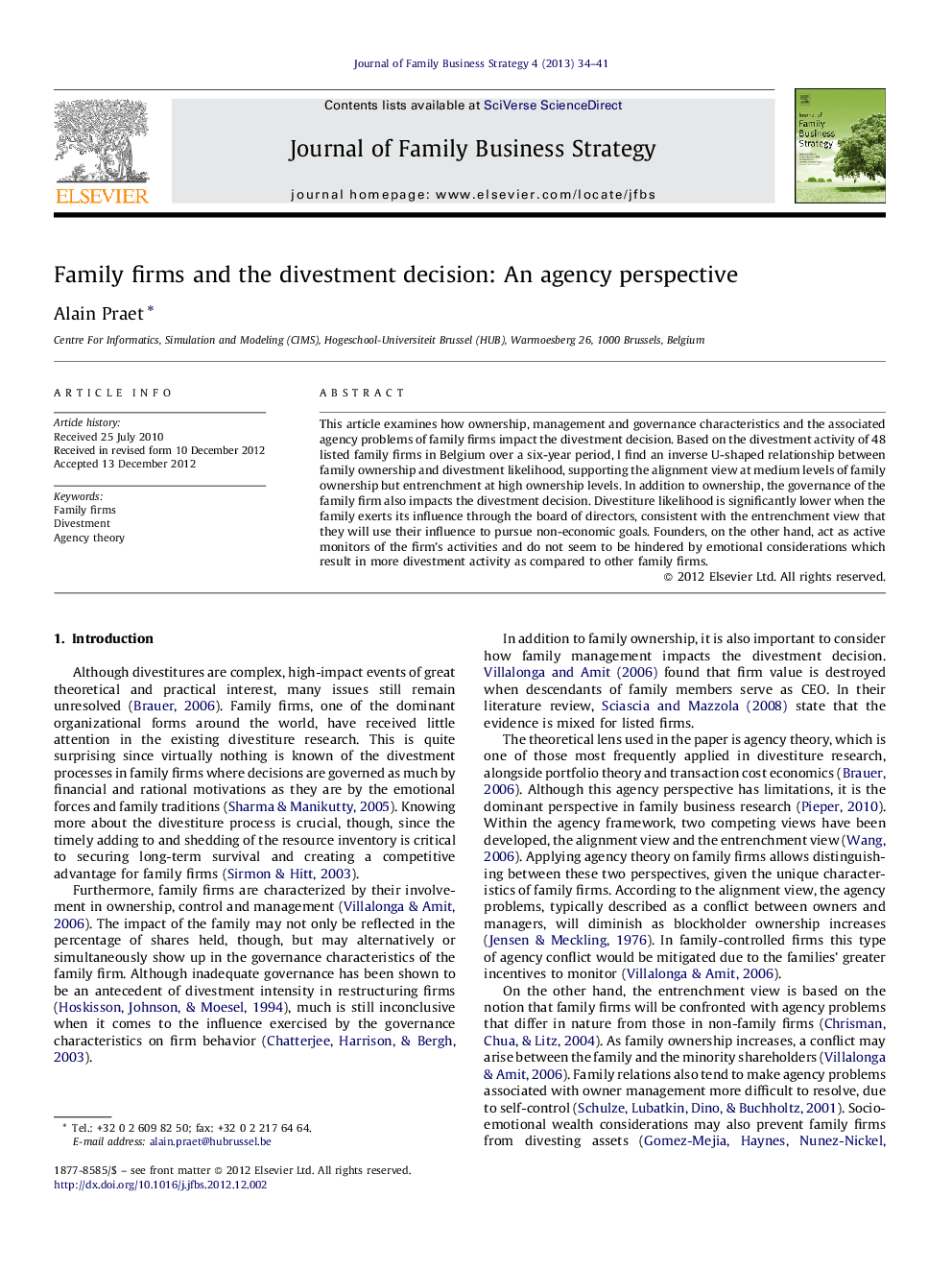| Article ID | Journal | Published Year | Pages | File Type |
|---|---|---|---|---|
| 1020201 | Journal of Family Business Strategy | 2013 | 8 Pages |
This article examines how ownership, management and governance characteristics and the associated agency problems of family firms impact the divestment decision. Based on the divestment activity of 48 listed family firms in Belgium over a six-year period, I find an inverse U-shaped relationship between family ownership and divestment likelihood, supporting the alignment view at medium levels of family ownership but entrenchment at high ownership levels. In addition to ownership, the governance of the family firm also impacts the divestment decision. Divestiture likelihood is significantly lower when the family exerts its influence through the board of directors, consistent with the entrenchment view that they will use their influence to pursue non-economic goals. Founders, on the other hand, act as active monitors of the firm's activities and do not seem to be hindered by emotional considerations which result in more divestment activity as compared to other family firms.
► A nonlinear relationship exists between divestment likelihood and family ownership. ► The alignment view is confirmed at moderate levels of ownership. ► The entrenchment motive holds at very high levels of family ownership. ► Divestment likelihood decreases as the family appoints more board members. ► Founders are more likely to divest subsidiaries.
